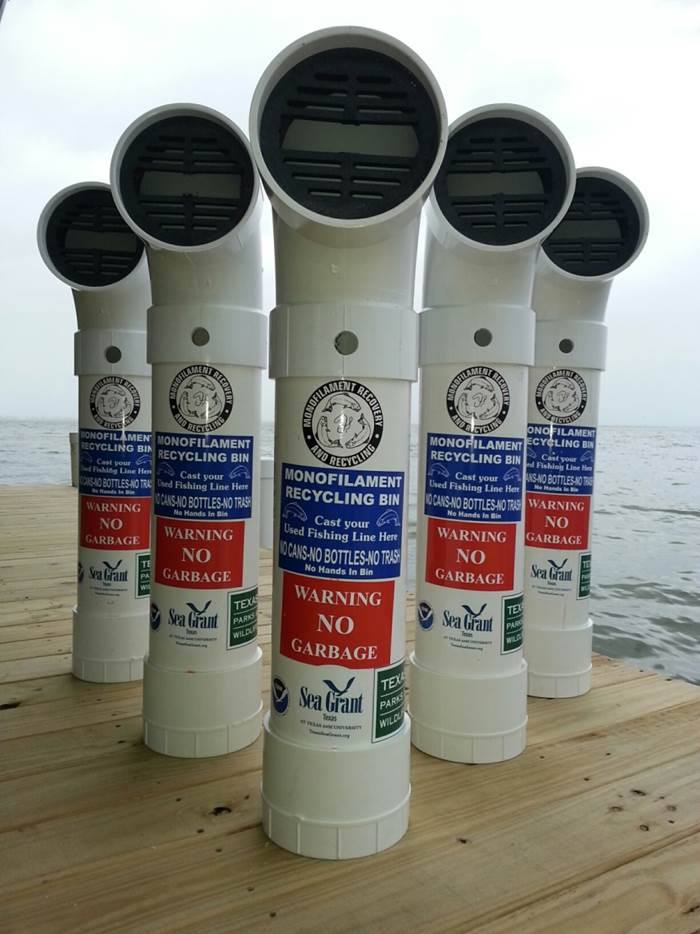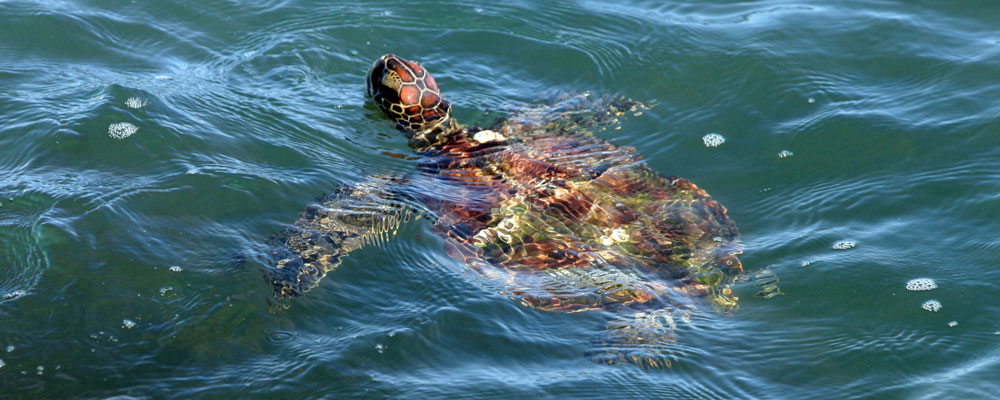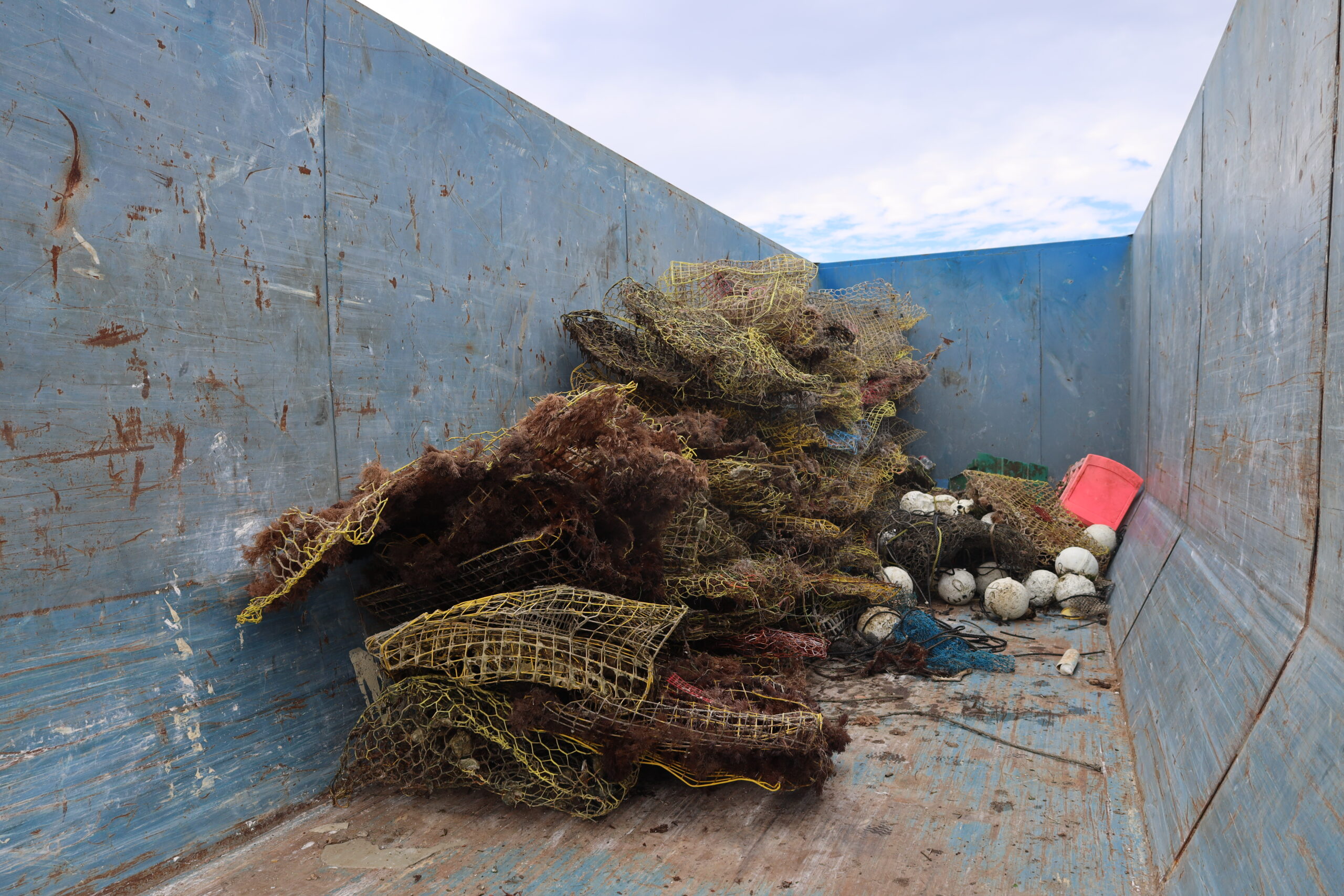Reducing Barriers to Marine Debris Prevention in the Texas Recreational Fishery
Marine debris is a critical issue facing many coastal areas. Texas has regularly been among the top states with the greatest volume of marine debris on its shorelines and has been shown to accumulate 5-10 times more debris than areas in the eastern region of the Gulf and other U.S. states.
This has negative impacts on natural resources and humans alike. Marine life, including fish, sea turtles, marine mammals, and seabirds can swallow pieces of trash and experience entanglements. Additionally, trash in our coastal environments is unsanitary and impacts the natural beauty of Texas beaches and waterways, which should remain safe, navigable, and clean for all to enjoy.
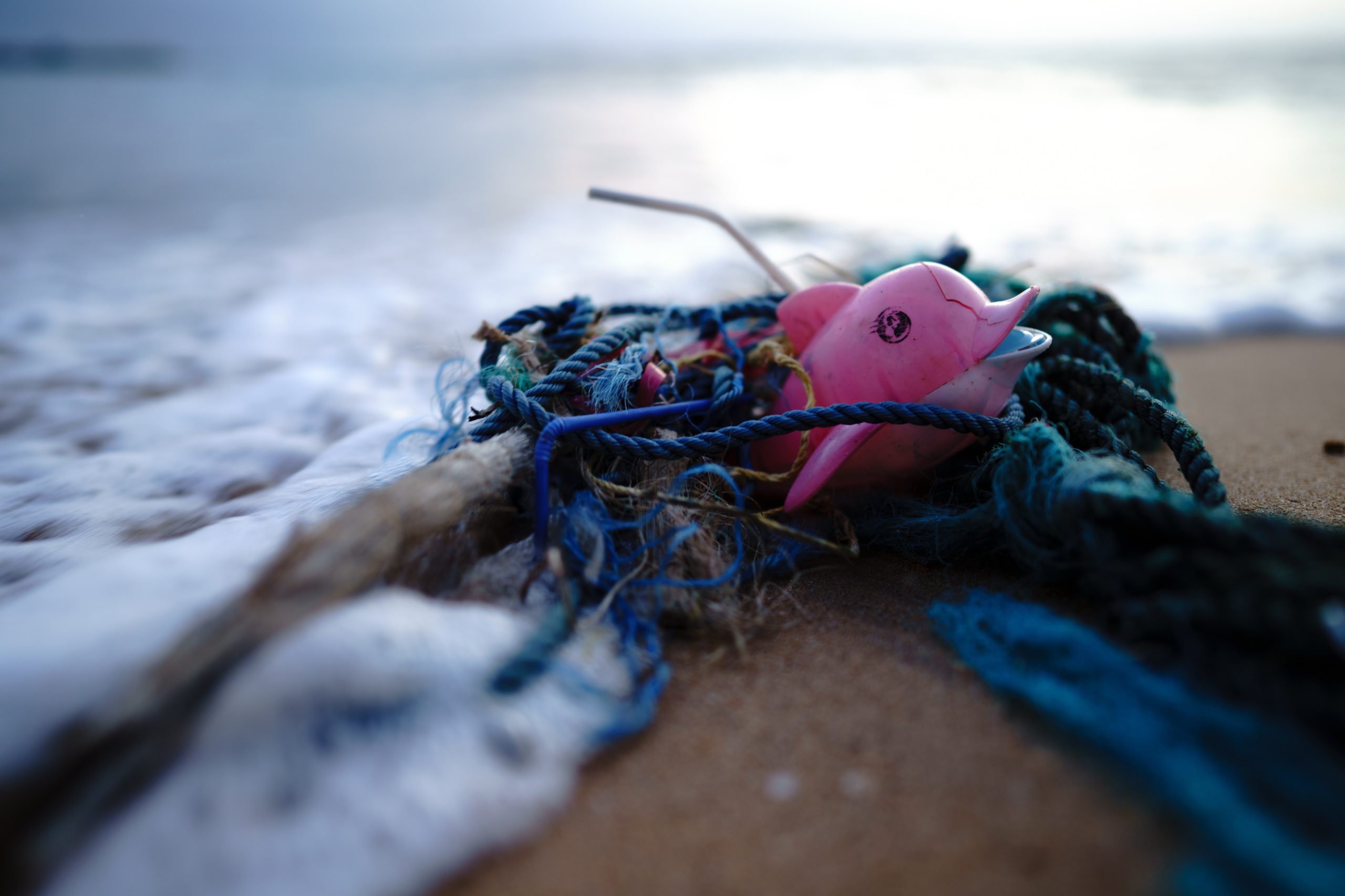
Overview
Marine debris is any manmade material that is intentionally or unintentionally disposed of or abandoned in the marine environment. Single-use plastics and other disposable products are the most common items identified as marine debris in Texas3. This includes plastic fragments, plastic beverage bottles and their caps, plastic containers, food wrappers, cups, straws, utensils, and cigarette butts4.
Plastics and other land-based trash can be transported to the marine environment through a variety of processes, including improper waste management, littering, runoff, or natural disasters, such as storms or tornadoes. Floating trash is also brought to Texas shorelines through ocean currents. For example, the North and South Equatorial Currents flow westward from Africa to the Americas, circulating waters and debris contained in these waters between continents. This results in marine debris of non-Texas origin being transported to the Gulf of America from afar.
Derelict fishing gear can also contribute to the problem2,4. Derelict fishing gear is any fishing gear that is lost, discarded, or abandoned in the marine environment, such as traps, ropes, nets, and fishing line2. Derelict equipment can continue to fish, trap, or entangle marine life (known as “ghost fishing”), pose navigational hazards, and damage benthic habitats.
Marine debris impacts the environment through wildlife entanglement, damage to living benthic habitats, hazards to navigation, and negative aesthetics on beaches and coasts. Plastic debris on Texas shorelines is a well-documented issue, with common contributors including plastic bottles and caps, cups, straws, plastic bags, and fishing line. To combat this, Texas Sea Grant works with the recreational fishing industry to educate anglers about marine debris impacts and equip them with tools and resources to properly contain trash and prevent marine debris during fishing activities. Funded by the NOAA Marine Debris Program, this project aims to:
- Expanded the Monofilament Recovery and Recycling Program by installing 98 new monofilament recycling devices and recycling hundreds of pounds of fishing line.
- Conducted a widespread outreach program that educated 5,743 coastal community members.
- Distributed Marine Debris Prevention Kits containing reusable alternatives to commonly used single-use plastics to 300 recreational anglers.
Project Goals
The goal of this project was to reduce the contribution of Texas anglers to the state’s marine debris problem. The project specifically targeted fishing line and plastic waste originating from the recreational hook-and-line fishery. From September 1, 2022, to August 31, 2024, this was achieved through education, prevention, and removal activities. Specific project objectives included:
- Expanding the Texas Monofilament Recovery and Recycling program by replacing missing or damaged recycling devices with the assistance of a volunteer network, and raising awareness of this initiative;
- Implementing an outreach plan to educate recreational anglers and for-hire captains about marine debris and prevention best practices;
- Distributing marine debris prevention kits containing reusable items to reduce usage of single-use plastics during recreational fishing activities.
Gallery
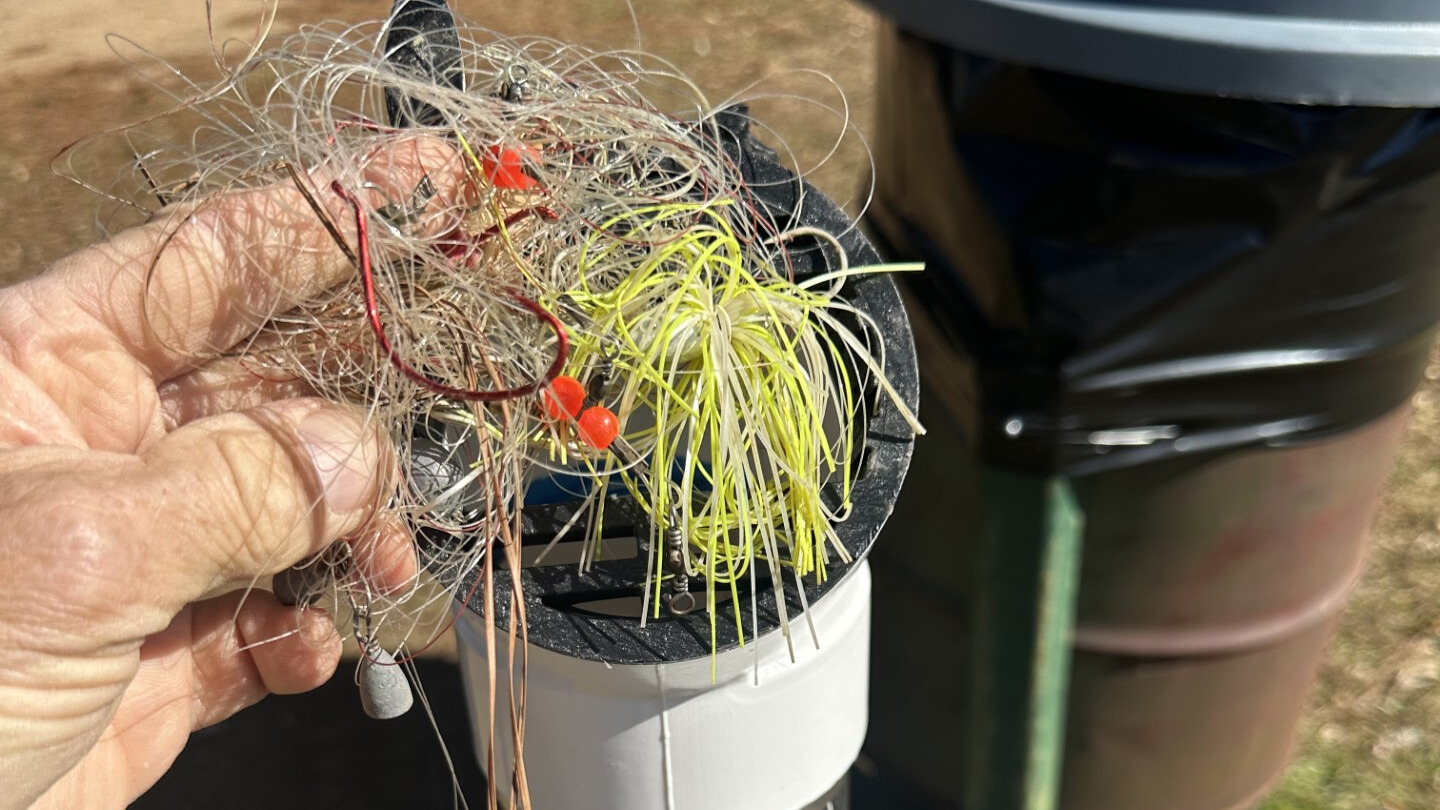
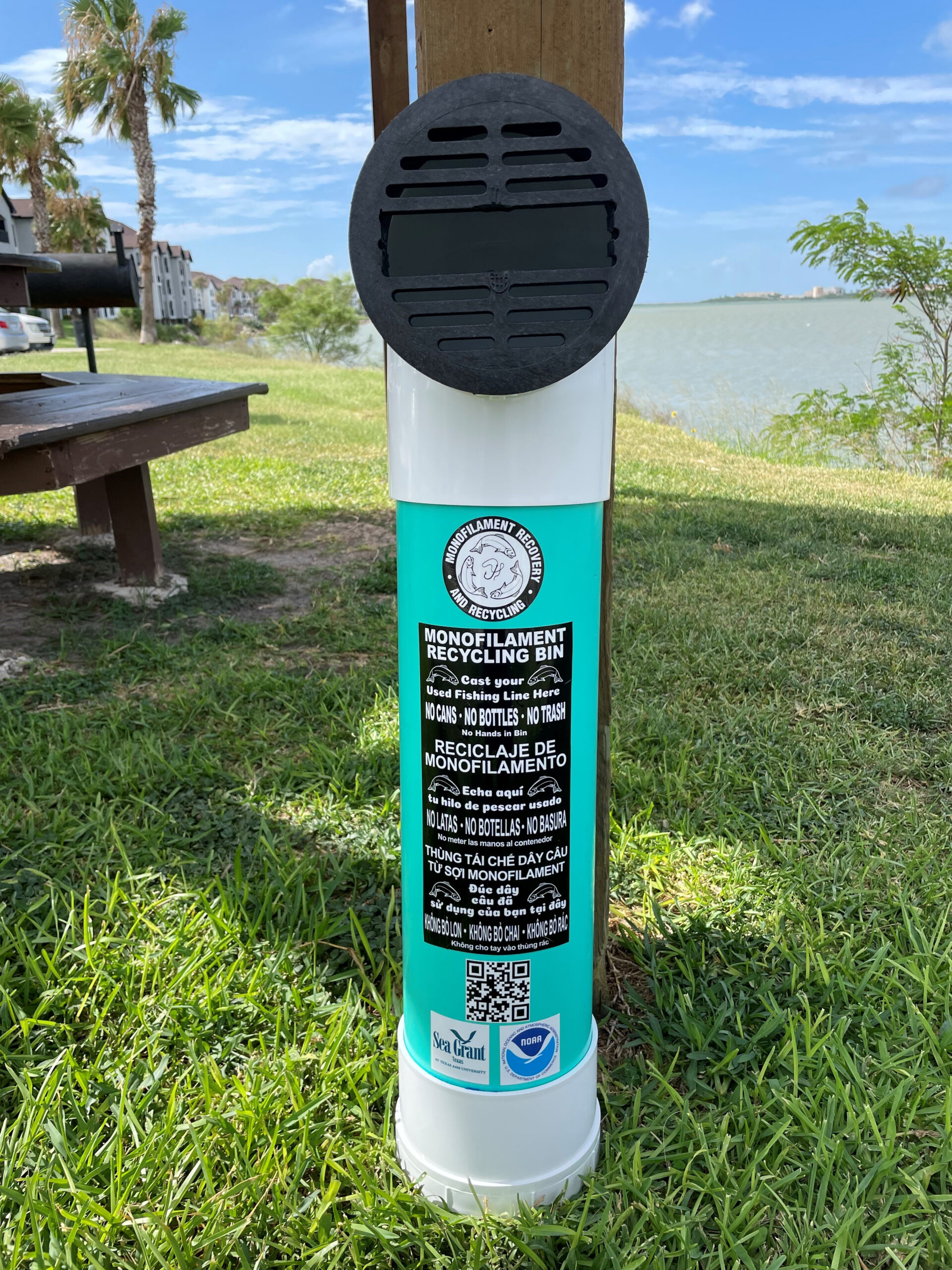
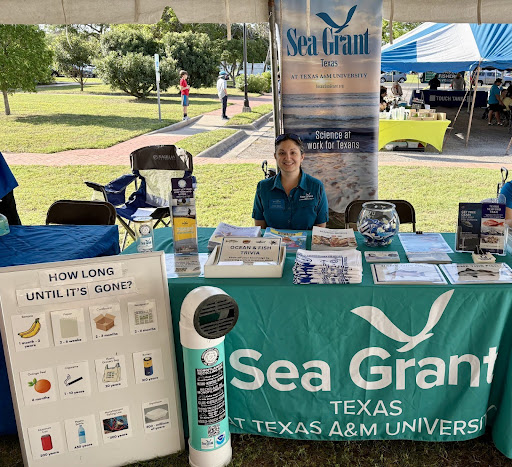
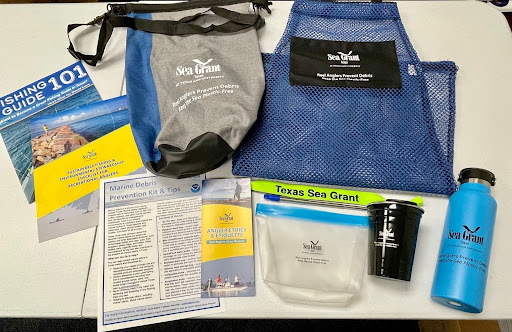
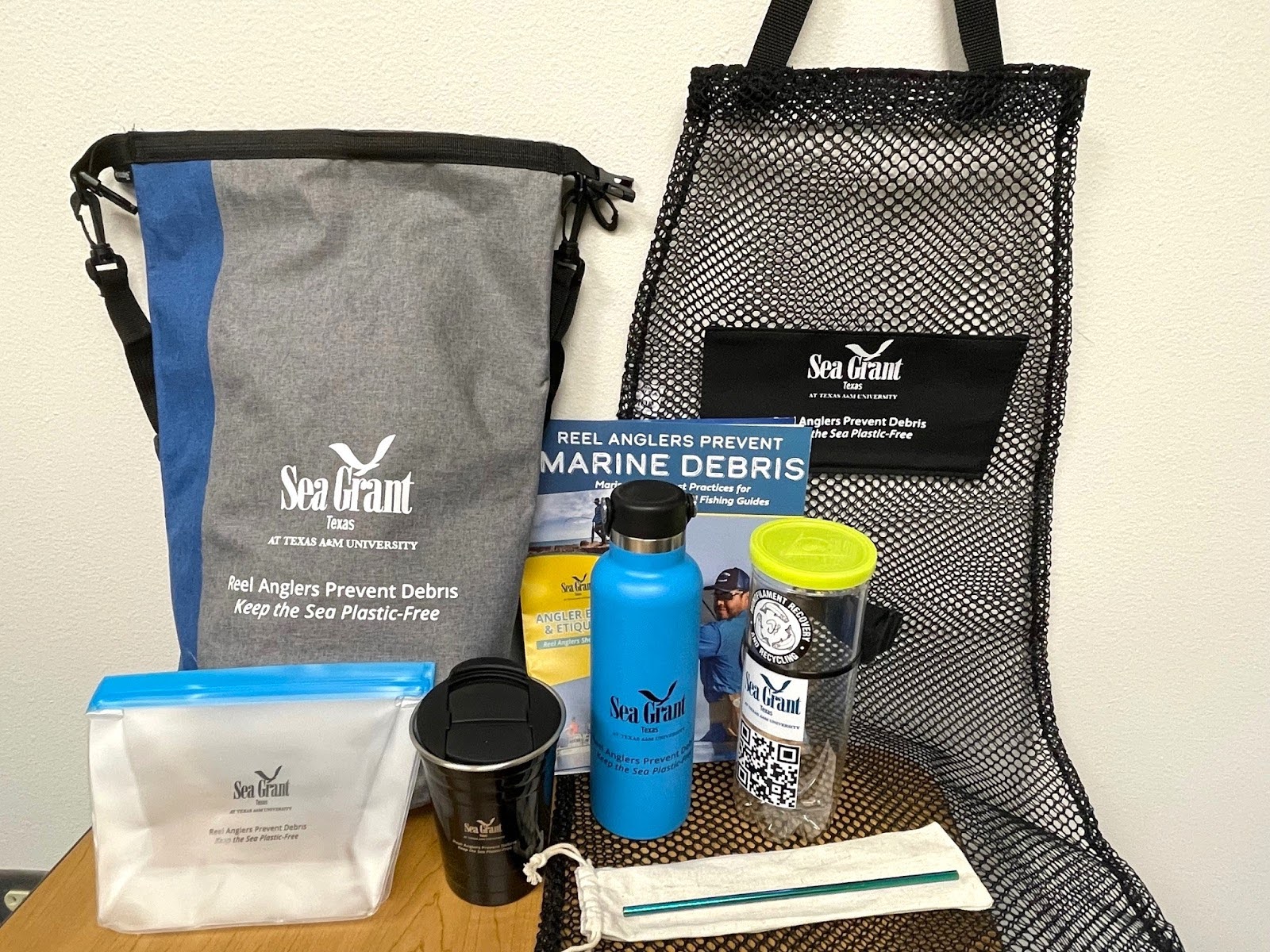
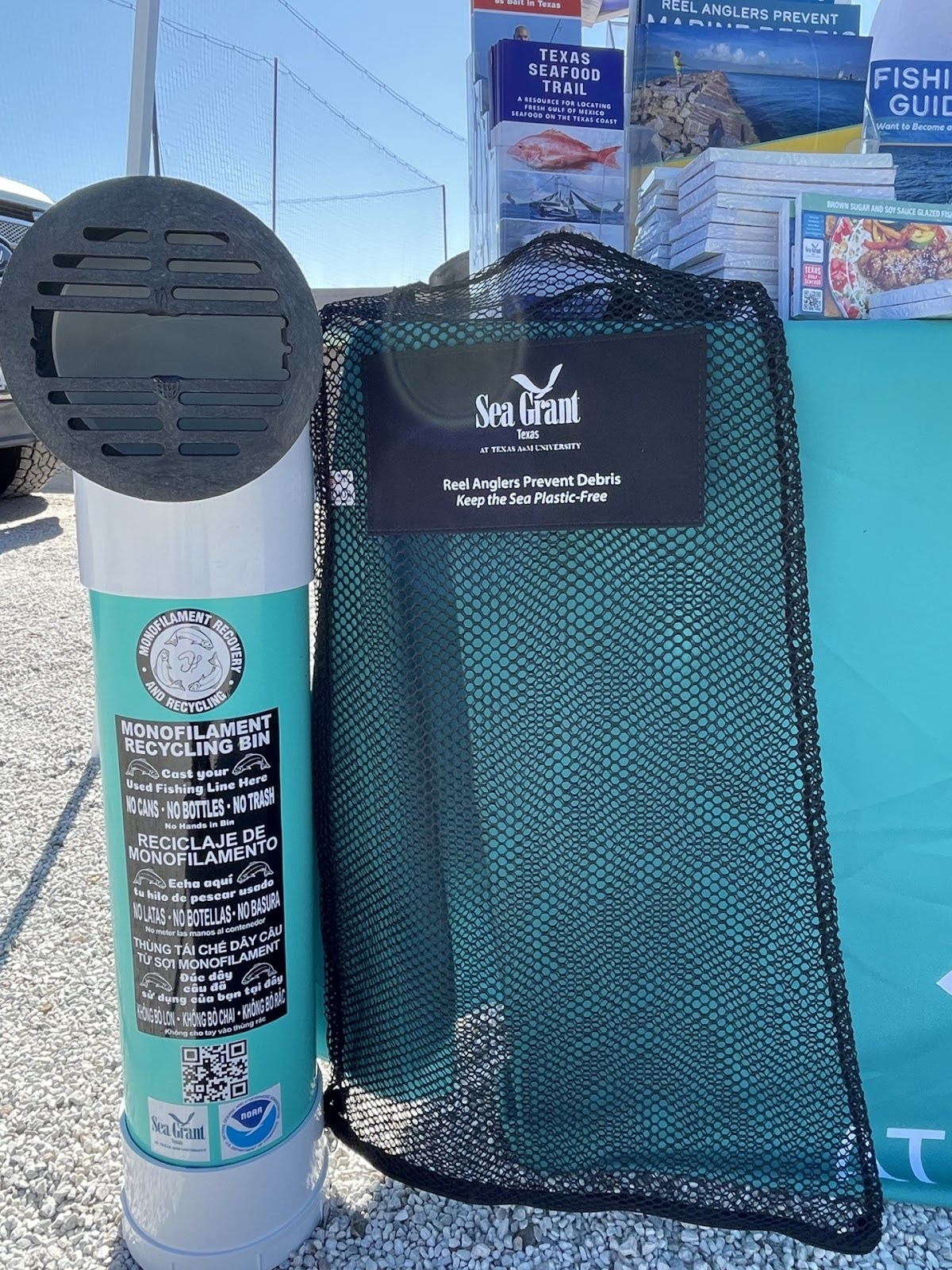
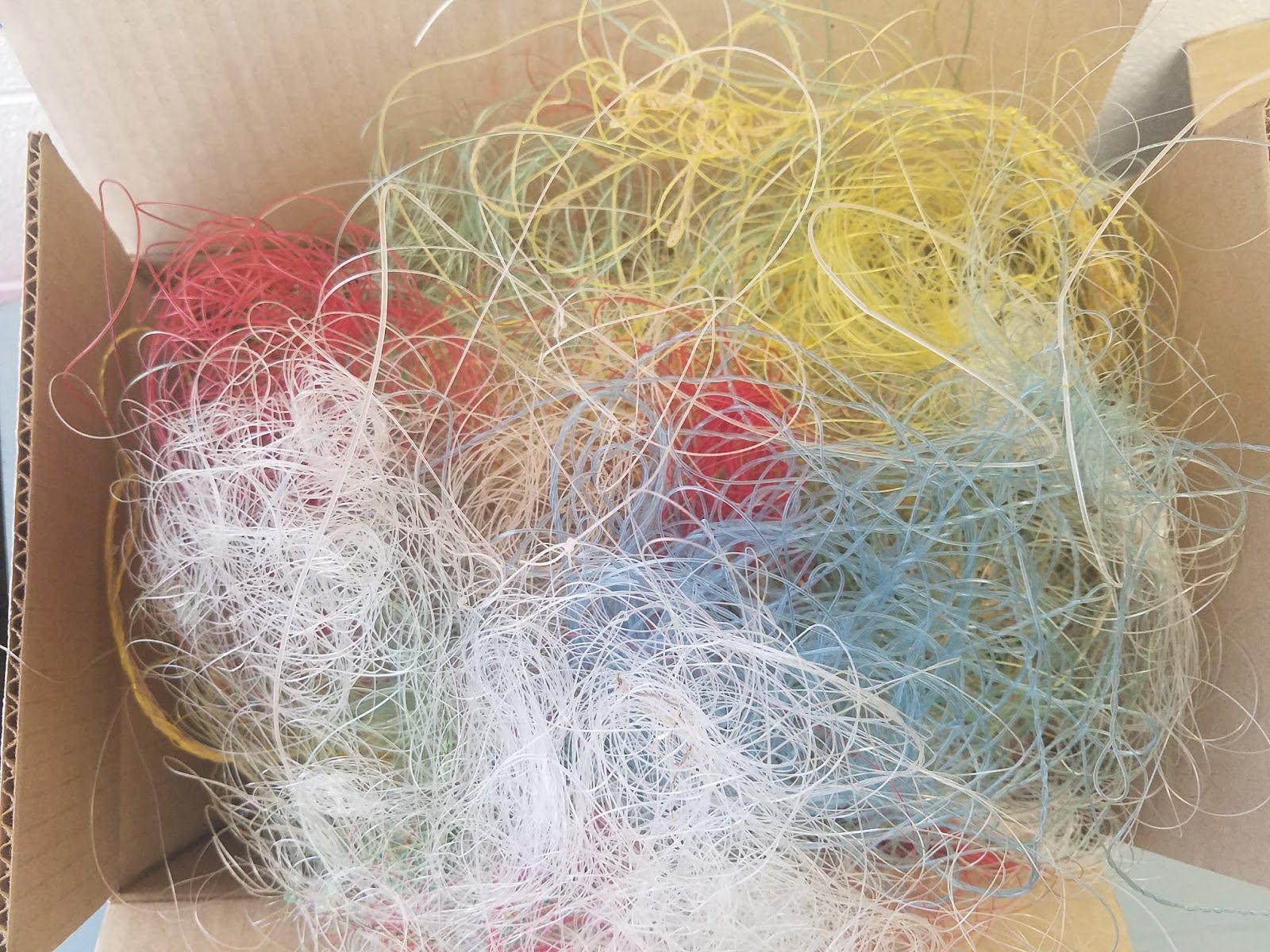
Products and Resources
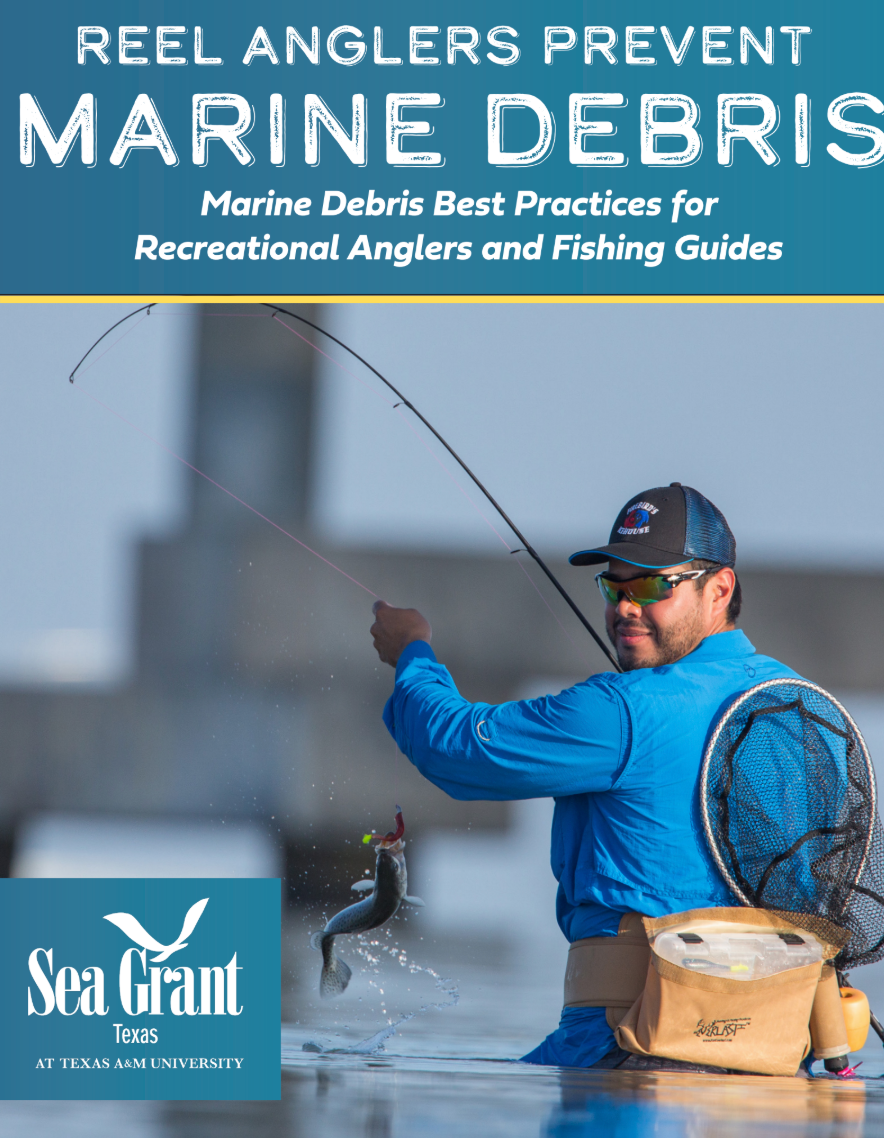
Reel Anglers Prevent Marine Debris
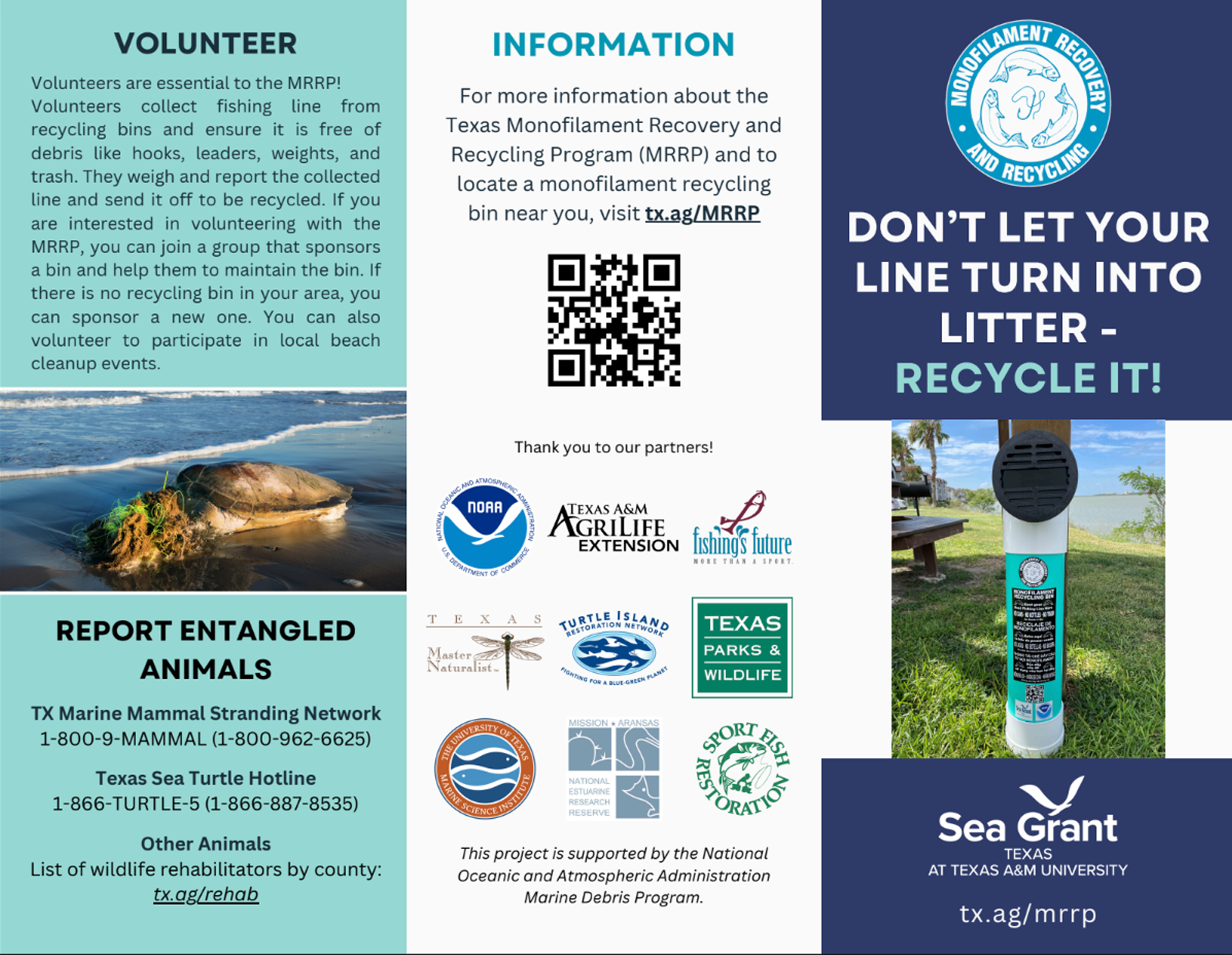
Monofilament Recycling Brochure
Events and Workshops
Partners
AgriLife Extension
Fishing’s Future
Turtle Island Restoration Network
Texas Master Naturalists
Texas Coastal Naturalists
Mission-Aransas National Estuarine Research Reserve
University of Texas Marine Science Institute
Texas Parks and Wildlife Department
NOAA Marine Debris Program
Captain Shane Cantrell
Captain Greg Ball
Captain Taylor Borel
Captain Zack Franey
Captain Brad Turner
Related Projects
Contact

Alexis Sabine
Assistant Program Director, Fisheries and Aquaculture Corpus Christi, Texas- asabine@tamu.edu
- (361) 825-3460

